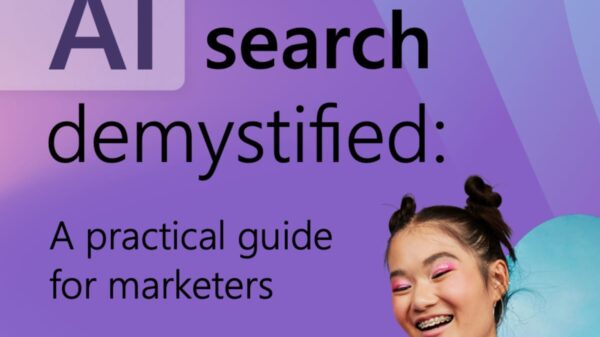In a significant advancement for travel planning, Google announced on November 17, 2025, its enhanced AI Mode in Search, which aims to revolutionize how users approach travel. This update introduces several exciting features such as Canvas for visual itineraries, a worldwide rollout of Flight Deals, and agentic booking capabilities that allow the AI to autonomously manage reservations. These developments position Google as a formidable competitor in the travel sector, potentially challenging established platforms like Expedia and Booking.com.
Introducing Canvas: A Visual Itinerary Tool
The newly launched Canvas feature facilitates travel planning by enabling users to articulate their travel preferences in natural language. The AI generates interactive visual itineraries that include flight options, hotel suggestions, and integrated Google Maps data. According to a Google Blog post, Canvas is designed to simplify the traditional trip planning process by providing users with a ‘canvas’ to edit and enhance their itineraries dynamically.
For instance, a user could input a prompt like “Plan a week-long romantic getaway to Paris in spring,” and the AI would respond with a structured layout showcasing flight deals, hotel bookings, and activity recommendations. This visualization not only makes the planning process more intuitive but also reduces the necessity for multiple tabs or applications, according to insights shared by The Verge.
Leveraging Google’s extensive data ecosystem, Canvas pulls real-time information from partners, such as OpenTable for restaurant reservations, and integrates with Google Flights for finding deals. This shift in user behavior could establish search engines as the primary hub for travel, minimizing reliance on dedicated travel apps. A Google post on X highlighted the forthcoming agentic capabilities, stating, “AI Mode can help you find & book restaurant reservations (coming soon for event tickets & local appointments).”
Flight Deals: Global Expansion and AI-Powered Bargain Hunting
Initially launched in August 2025, the Flight Deals feature is now accessible in over 200 countries. It utilizes AI to scour the market for optimal airfare based on user input. As detailed in a Google Blog entry, users can request flights by saying, “Find cheap flights from New York to Tokyo for a family of four in December,” allowing the tool to present options that align with their preferences, even excluding basic economy fares. This democratization of travel deals is underscored by coverage from TechCrunch, highlighting how AI processes natural language to match user intent, thereby significantly reducing time spent on manual searches.
Agentic Booking: The Future of Travel Reservations
Google’s agentic features take travel planning a step further by enabling direct booking within the Search platform. For example, the tool integrates with platforms such as Resy and Tock to check restaurant availability and secure reservations. Upcoming expansions will include support for event tickets and local services, as reported by Search Engine Journal. This marks a significant evolution in how users manage their travel plans.
As shared by Google executive Rose Yao on X, “Prepare for takeoff… Today we’re launching Flight Deals, a new AI-powered search tool within Google Flights.” This agentic approach allows the AI to act on behalf of the user, handling confirmations and payments securely, raising questions regarding data privacy and the integration of third-party services.
Implications for the Travel Industry
The travel industry is closely monitoring these advancements. A TechRadar analysis suggests that Google’s tools integrate itinerary building, deal-finding, and booking into a cohesive system, which could significantly affect the market shares of established companies such as Expedia and Kayak. Given that Google handles billions of queries daily, this direct funneling of users toward bookings could undermine the position of these incumbents.
Moreover, partnerships with companies like Booking.com for hotel bookings underscore Google’s strategy to deeply embed itself within the travel ecosystem. As highlighted by Techbuzz, this competitive edge stems from superior search integration that poses a direct threat to traditional travel companies.
The Evolution of AI Mode
At its core, AI Mode represents Google’s commitment to developing ‘agentic’ AI that not only responds to queries but also takes action. This evolution builds on updates initiated in March 2025, enhancing personalized results based on user history while initiating discussions around algorithmic bias and personalization ethics. Users have responded positively, with some reporting that the AI scored 90.5% on WebVoyager for tasks like flight booking. However, challenges remain, particularly in ensuring the accuracy of dynamic travel data and mitigating potential errors in AI recommendations.
Future Outlook: What Lies Ahead for Google’s Travel AI
As Google continues to refine its offerings, future expansions could include more personalized agents, potentially integrating with Google Wallet for seamless payments or augmented reality previews of destinations. Industry experts perceive these developments as part of a broader AI strategy within Search, particularly regarding agentic booking for various services.
As competition intensifies with advancements from entities like Apple and Meta, Google’s recent moves solidify its leadership in the realm of travel AI. Nonetheless, regulatory scrutiny regarding data usage and monopolistic practices remains a looming concern as the travel industry emerges as a key battleground in the AI landscape.
See also Bezos’ Project Prometheus Aims to Transform Manufacturing AI Alignment Challenges
Bezos’ Project Prometheus Aims to Transform Manufacturing AI Alignment Challenges Google Launches WeatherNext 2 AI, Delivers 8x Faster and More Accurate Forecasts
Google Launches WeatherNext 2 AI, Delivers 8x Faster and More Accurate Forecasts xAI Launches Grok 4.1 with 64% Preference for Enhanced Speed and Quality
xAI Launches Grok 4.1 with 64% Preference for Enhanced Speed and Quality Rowan Chamber Hosts AI Expert Dr. Lane Freeman at November Power in Partnership Breakfast
Rowan Chamber Hosts AI Expert Dr. Lane Freeman at November Power in Partnership Breakfast








































































